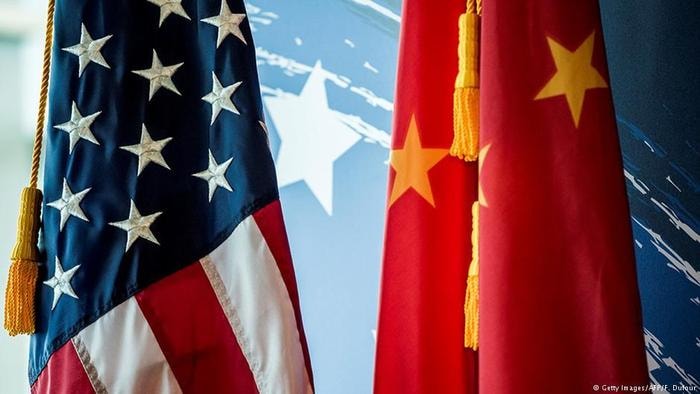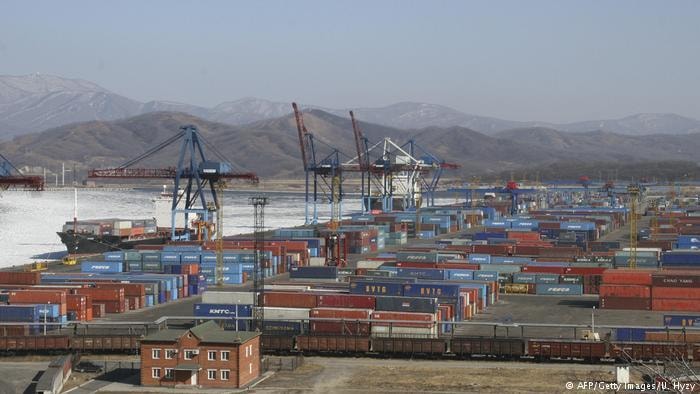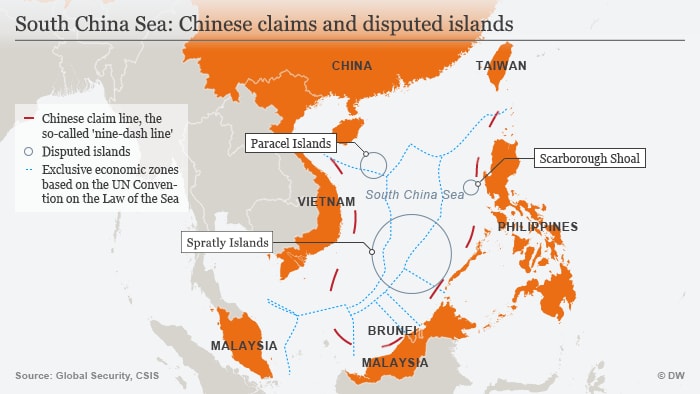Why the US is interested in the Indo-Pacific
(Baonghean.vn) - During his 13-day trip to Asia, US President Donald Trump reaffirmed his country's commitment to the Indo-Pacific region. DW news agency has listed four reasons why the US is interested in this region.
President Trump has emphasized the “America First” policy, a slogan that is deeply embedded in the “identity” of the US leader. However, he has also highlighted Washington’s long-term commitment to the region he calls the “Indo-Pacific”.
 |
| The flags of the United States and China. Photo: Getty |
1. Expanding regional trade
 |
| Japan is the third largest trading partner of the US. Photo: AFP |
For American businesses to successfully trade goods or services, they have a strong interest in accessing natural resources, businesses, and billions of customers and workers in the Indo-Pacific.
China, Japan and India—the world's second, third and seventh largest economies, respectively—are key trading partners of the United States.
US trade with China and India has increased significantly over the past 10 years. US exports to both countries doubled between 2006 and 2016. Over the same period, imports from China increased by more than 60%, while imports from India increased by more than 100%.
Despite his “America First” rhetoric, President Trump appears to have no intention of abandoning all measures to strengthen trade relations. Speaking in Vietnam on November 10, Mr. Trump affirmed his desire to sign bilateral agreements with the above countries, which will “adhere to the principles of fair and reciprocal trade.”
2. China's growing economic influence
 |
| Under Obama, Washington began a collective effort to counter China's influence in regional trade. Photo: Reuters |
Beijing is a formidable rival of the United States, emerging as the most important trading partner of many countries in the region. Some US officials believe that China can use its influence to set trade rules in partner countries, thereby benefiting Chinese businesses while making it difficult for American businesses.
In 2015, President Obama predicted this fear: “Right now, China wants to write the rules for trade in Asia… We can’t let that happen. We need to write the rules.”
It was this ambition that led the US to support the Trans-Pacific Partnership (TPP) Agreement, which began in 2011. This was seen as an important agreement to ensure US access to Asian markets and establish regional trade rules.
However, Mr. Trump withdrew from the TPP in January, shortly after taking office as President of the United States. Although Washington's withdrawal cannot abolish the TPP, it can create conditions for China to become the rule-maker in the region.
Beijing has been negotiating a 10-country free trade deal, known as the “Regional Comprehensive Economic Partnership (RCEP),” without the United States.
3. China and the East Sea
 |
| China's claim of sovereignty has angered many neighboring countries, including US allies. Photo: CSIS |
But America's concerns about China are not just about money, but also about its behavior in its neighborhood, which many US officials see as a security challenge.
In recent years, Beijing has ignored the sovereignty claims of its neighbors in the South China Sea and built artificial islands, and established no-fly zones across the region.
Despite the objections of the Obama administration, the Chinese military has continued to defend its claims, threatening foreign naval vessels and aircraft that sail too close to its positions. If these threats lead to conflict, the United States will be “dragged in” as part of an alliance with China’s neighbors.
4. Nuclear weapons
The United States has always opposed the proliferation of nuclear weapons. The Indo-Pacific region is home to four nuclear-armed states: China, India, Pakistan and North Korea, and Washington accepts only one state as having them: China.
The US agreed to an international nuclear weapons treaty called the Nuclear Non-Proliferation Treaty (NPT), which gives Beijing the right to develop and possess them. However, the NPT does not give this right to the other three countries.
Apart from the legal issue, there are other practical reasons for international concern if India, Pakistan and North Korea possess nuclear weapons.
Many observers say India and Pakistan could use their weapons against each other. Both countries have gone to war three times, and both have threatened to use their nuclear arsenals if another conflict breaks out. Pakistan is also a challenge because of the risk that Islamist terrorist groups operating in the country could gain access to the country’s nuclear arsenal.
The US has recently focused on resolving the nuclear issue of North Korea. This isolated country seems to have the ability to attack not only US allies Japan and South Korea, but also the US mainland. In response, President Trump warned North Korean leader Kim Jong-un that he would face “fire and fury like the world has never seen” if he did not end his missile and nuclear programs./.
Lan Ha
(According to DW)
| RELATED NEWS |
|---|

.png)
